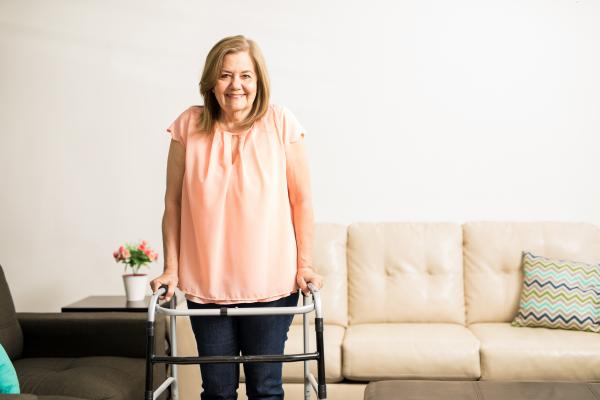Blog

Top 10 Home Safety Tips for Seniors
Aug 15, 2018
Accidents don’t have to happen.
While at-home care is almost always preferable in terms of quality of life, home is also where the most accidents happen. However, there is plenty that you can do to avoid injuries and make your home a safer place.
You’ll notice that the first 5 tips involve prevention advice for avoiding falls. For a detailed program on preventing falls, the National Council on Aging offers comprehensive advice and instruction on balance and exercise and environmental and behavioral risk factors. Check out the Falls Prevention Program from the National Agency on Aging (NOA) PDF. For complete details on safeguarding your home against falls, the Center for Disease Control (CDC) offers a complete Fall Prevention Home Safety Checklist PDF.
- Keep floors clear of clutter.
Lower your risk of falls when floors are clears and doorways and drawers are shut when not in use. Do a walk-through safety assessment of your home to discover where you need to de-clutter.
- Clean spills immediately.
Quick and simple cleanup, when the spill happens, will reduce your odds forgetting about the chore and will reduce your odds of slipping.
- Install hand rails and grab bars.
These assist help keep you stable when they are installed along a stairway and in the shower.
- Install a nightlight in the bathroom.
Nightlights are a smart idea for any area you tend visit during the nighttime.
- Have your vision checked.
Vision changes as we age. Conditions like diabetes can compromise vision. Make sure your prescription is up to date. Learn more.
- Update emergency information.
This may be obvious, but if is often neglected: be sure that your emergency information – including contacts, conditions and medications – is updated and easily accessible. Here’s a good form to have on hand and share with your emergency contacts: [PDF].
- Don’t overload circuits.
Prevent electrical overloads and a potential fire hazard by unplugging appliances that aren’t in use to avoid overloading circuits. Learn more.
- Test fire alarms monthly.
Your fire alarm won’t if the batteries don’t have a charge. Make it a habit to test your fire alarm once a month. FEMA and the CDC have a complete PDF guide to fire safety.
- Safely dispose of old, unused medications.
Prescription medications are abused more than any other drugs besides alcohol and marijuana. Disposing your medications safely can save lives.
- Check expiration dates on food.
One in every 6 Americans gets sick from food-borne illness every year. Checking your food is an important way to stay healthy. Learn more about food safety.
Find financial help.
Care at home can be a smart and safe choice when you follow a few simple guidelines. And many seniors can take advantage of financial assistance for necessary home improvements and modifications to facilitate accessibility. Learn more.




